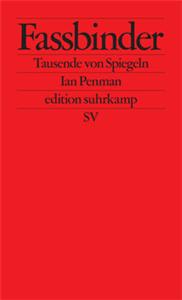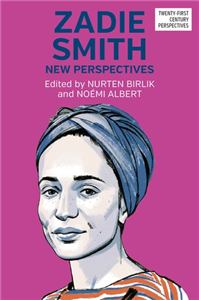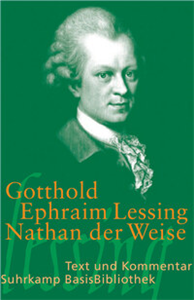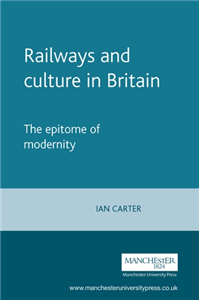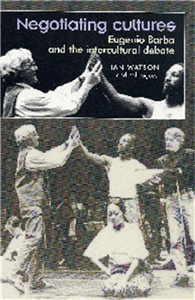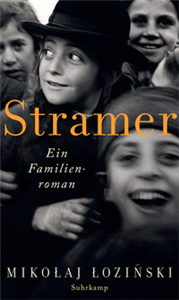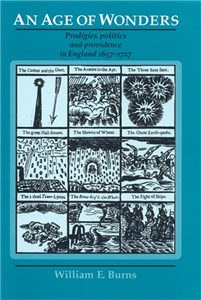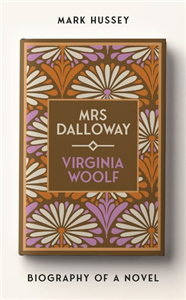Your Search Results
-
Springer Nature
For over 175 years Springer Nature has been advancing discovery by providingthe best possible service to the whole research community.We help researchers uncover new ideas, makesure all the research we publish is significant, robust and stands up to objectivescrutiny, that it reaches all relevant audiences in the best possible format, and can be discovered, accessed, used, re-used and shared.Wesupport librarians and institutions with innovations in technology and data; and providequality publishing support to societies. As a research publisher, Springer Nature is home to trusted brands including Springer, Nature Research, BMC, Palgrave Macmillan and Scientific American. https://group.springernature.com/gp/group
View Rights Portal
-
Promoted ContentFebruary 2024
Fassbinder
Tausende von Spiegeln
by Ian Penman, Robin Detje
Schon als Rainer Werner Fassbinder 1982 starb, wollte Ian Penman dem exzessiv produktiven Macher von Filmen wie Angst essen Seele auf oder Die Ehe der Maria Braun ein Buch widmen. Vierzig Jahre später greift er den Plan wieder auf. Sein Pitch: »Diese Story hat alles! Sex, Drogen, Kunst, Großstadt, Moderne, Kino und Revolution. In ihm sind Viele. Er wurde sein eigenes Hollywood.« Das Ergebnis: ein Wirbelsturm biografischer Fragmente und Aperçus, ein Kaleidoskop der »Fassbundesrepublik« mit ihrer unterdrückten Vergangenheit, ihrer Paranoia, ihren radikalen künstlerischen Experimenten. Kiefer, Syberberg, Tangerine Dream. Für Ian Penman hat RWF den Status, den Baudelaire für Walter Benjamin hatte: Protagonist und Medium einer Spätphase – einer Epoche, die bereits die nächste träumt.
-
Promoted ContentLiterature & Literary StudiesApril 2026
Zadie Smith
New perspectives
by Nurten Birlik, Noémi Albert
Zadie Smith's fiction reimagines subjectivity, relationality, and the conditions of contemporary life. This book offers a timely reassessment of her work, addressing identity, urban experience, and the category of the human. Moving beyond postcolonial and multiculturalist readings, it brings psychoanalytic, historical, symptomatic, and cultural materialist perspectives to bear across her novels, stories, essays, and plays. The collection explores how Smith's characters, shaped by diverse backgrounds and settings, challenge fixed ideas of Britishness and personhood. It argues that her writing opens up a new ontological space-defined by fluid identities, shifting subjectivities, and evolving forms of relationality. By reconsidering both the human and the spatial in Smith's work, the book makes a valuable contribution to contemporary literary criticism and to current thinking on narrative, identity, and urban life.
-
 Trusted Partner
Trusted Partner
-
 Trusted Partner
Trusted Partner
-
 Trusted Partner
Trusted Partner
-
 Trusted Partner
Humanities & Social SciencesNovember 2013
Trusted Partner
Humanities & Social SciencesNovember 2013Renaissance humanism and ethnicity before race
The Irish and the English in the seventeenth century
by Ian Campbell
The modern ideology of race, so important in twentieth-century Europe, incorporates both a theory of human societies and a theory of human bodies. Ian Campbell's new study examines how the elite in early modern Ireland spoke about human societies and human bodies, and demonstrates that this elite discourse was grounded in a commitment to the languages and sciences of Renaissance Humanism. Emphasising the education of all of early modern Ireland's antagonistic ethnic groups in common European university and grammar school traditions, Campbell explains both the workings of the learned English critique of Irish society, and the no less learned Irish response. Then he turns to Irish debates on nobility, medicine and theology in order to illuminate the problem of human heredity. He concludes by demonstrating how the Enlightenment swept away these humanist theories of body and society, prior to the development of modern racial ideology in the late eighteenth century. ;
-
 Trusted Partner
Trusted Partner
-
 Trusted Partner
July 2003
Trusted Partner
July 2003Nathan der Weise
Ein dramatisches Gedicht in fünf Aufzügen
by Gotthold Ephraim Lessing, Wilhelm Große
Text und Kommentar in einem Band. In der Suhrkamp BasisBibliothek erscheinen literarische Hauptwerke aller Epochen und Gattungen als Arbeitstexte für Schule und Studium. Der vollständige Text wird ergänzt durch anschaulich geschriebene Kommentare.
-
 Trusted Partner
The ArtsNovember 2007
Trusted Partner
The ArtsNovember 2007So exotic, so homemade
Surrealism, Englishness and documentary photography
by Ian Walker, John Taylor
In his previous book City Gorged with Dreams (2002), Ian Walker challenged established ideas about Surrealist photography by emphasising the key role played by documentary photographs in Parisian Surrealism. Now Walker turns his attention to the arrival of Surrealism in England in 1936. Examining for the first time the surprising relationship between Surrealism and English documentary photography and film, the book shows that some of the most interesting work of the period was made in the ambiguous spaces between them. One of the key themes in this book is the relationship between the 'homely' and the 'exotic', in the innovative mix of poetry and ethnography in Mass-Observation for example, or the shadowed England constructed in the work of Bill Brandt. Based on extensive archival research, interviews and visits to sites where the photographs were made, this book is rich in detailed analysis yet written in an accessible and often witty style. ;
-
 Trusted Partner
Humanities & Social SciencesSeptember 2001
Trusted Partner
Humanities & Social SciencesSeptember 2001Railways and culture in Britain
The epitome of modernity
by Ian Carter, Jeffrey Richards
The nineteenth-century's steam railway epitomised modernity's relentlessly onrushing advance. In Railways and culture in Britain Ian Carter delves into the cultural impact of train technology, and how this was represented in British society. Why, for example, did Britain possess no great railway novel? The book's first half tests that assertion by comparing fiction and images by some canonical British figures (Turner, Dickens, Arnold Bennett) with selected French and Russian competitors: Tolstoy, Zola, Monet, Manet. The second half proposes that if high cultural work on the British steam railway is thin, then this does not mean that all British culture ignored this revolutionary artefact. Detailed discussions of comic fiction, crime fiction and cartoons reveal a popular fascination with railways tumbling from vast (and hitherto unexplored) stores of critically overlooked genres. A final chapter contemplates cultural correlations of the steam railway's eclipse. If this was the epitome of modernity, then does the triumph of diesel and electric trains, of cars and planes, signal a decisive shift to postmodernity? ;
-
 Trusted Partner
Literature & Literary StudiesJune 2002
Trusted Partner
Literature & Literary StudiesJune 2002Negotiating cultures
Eugenio Barba and the intercultural debate
by Maria M. Delgado, Ian Watson, Maggie B. Gale, Peter Lichtenfels
Eugenio Barba is one of the world's leading theatre artists and theorists working across cultures. Examines three major strands of Barba's work; his research at the International School of Theatre Anthropology, his use of performance as a means of exchange, and his ongoing relationship with Latin America. The artists who write and are interviewed in the book provide an invaluable insight into Barba's work methods, his relationship with performers from different cultures, and the ramifications of his research in a variety of performance forms. Concludes with a dialogue between Barba and Ian Watson. ;
-
 Trusted Partner
MedicineJune 2012
Trusted Partner
MedicineJune 2012Poison, detection and the Victorian imagination
by Ian Burney, Bertrand Taithe, Roger Cooter, Carolyn Steedman
This fascinating book looks at the phenomenon of murder and poisoning in the nineteenth century. Focusing on the case of William Palmer, a medical doctor who in 1856 was convicted of murder by poisoning, it examines how his case baffled toxicologists, doctors, detectives and judges. The investigation commences with an overview of the practice of toxicology in the Victorian era, and goes on to explore the demands imposed by legal testimony on scientific work to convict criminals. In addressing Palmer's trial, Burney focuses on the testimony of Alfred Swaine Taylor, a leading expert on poisons, and integrates the medical, legal and literary evidence to make sense of the trial itself and the sinister place of poison in wider Victorian society. Ian Burney has produced an exemplary work of cultural history, mixing a keen understanding of the contemporary social and cultural landscape with the scientific and medical history of the period. ;
-
 Trusted Partner
August 2010
Trusted Partner
August 2010Kuckuck, Krake, Kakerlake
Das etwas andere Tierhörbuch
by Bibi Dumon Tak, Meike Blatnik, Andreas Manhart, Felix von Manteuffel, David Nathan, Patrick Bach, Robert Stadlober, Andreas Fröhlich, Isabella Grothe, Anne Helm, Anne Moll, Oliver Rohrbeck, Jens Wawrczeck, Rainer Strecker, Fleur van der Weel
Die verrückte Welt der Tiere – zum Lachen, Lernen, Lustigfinden! Wer kennt den Wasserreservoirfrosch? Das dsungarische Zwerghamstermännchen? Diese Tiere gibt es tatsächlich – und sie sind nicht nur selten, sondern haben auch besondere Fähigkeiten: Der Frosch verwandelt sich in trockenen Zeiten in eine Mumie und der Hamster ist ein begabter Geburtshelfer. Und wussten Sie schon, dass es Fische gibt, die hungrigen Delfinen einfach davonfliegen? Mehrfach ausgezeichnetes Hörbuch, u.a. Gewinner des Deutschen Kinder- und Jugend-Hörbuchpreis 2010. Ungekürzte Lesung mit Musik und vielen bekannten Sprechern (Patrick Bach, Andreas Fröhlich, Isabella Grothe, Anne Helm, Leslie Malton, Felix von Manteuffel, Anne Moll, David Nathan, Oliver Rohrbeck, Robert Stadlober, Rainer Strecker, Jens Wawrczeck). Für Tierliebhaber und alle, die neugierig sind! Witziges, liebevolles und humorvolles Hörbuch für Kinder ab 8 Jahren.
-
 Trusted Partner
October 2024
Trusted Partner
October 2024Stramer
Ein Familienroman
by Mikołaj Łoziński, Renate Schmidgall
Sensibel und mitreißend erzählt Mikołaj Łoziński von einer einfachen jüdischen Familie zu Beginn des 20. Jahrhunderts, von ihrem Alltag, ihren Hoffnungen, Träumen und Reibereien – und von einer berührenden Verbundenheit in sich verdunkelnden Zeiten. Die winzige Wohnung in der Goldhammerstraße platzt aus allen Nähten: Nathan Stramer, seine Frau Rywka und ihre sechs Kinder schlagen sich so durch. Nathan hat sein Glück zu Beginn des Jahrhunderts in New York gesucht und ist nach einigen erfolglosen Jahren wieder nach Galizien zurückgekehrt. Sein Geschäftssinn ist so ungebrochen wie trügerisch – Tausende Kerzen, leider ohne Dochte, dann der Wagen voll Kolophonium, wie hätte er ahnen können, dass es so wenige Geiger gibt in Tarnów?Nebenbei versucht er, seine sechs Kinder auf den Weg zu bringen. Aber die Kinder haben ihre ganz eigenen Wege im Sinn. Und während Nathan sich in die nächste Geschäftsidee versteigt, die ihnen endlich den Umzug in die Neue Welt, das elegante jüdische Viertel mit den Buntglasfenstern und den verzierten Erkern bringen soll, wachsen die Kinder heran. Die Zeiten werden härter, der wachsende Antisemitismus vergiftet die gesellschaftliche Atmosphäre immer stärker. Mit dem Einmarsch der Deutschen in Polen scheint das Ende der Familie vorgezeichnet.
-
 Trusted Partner
Trusted Partner
-
 Trusted Partner
Trusted Partner
-
 Trusted Partner
March 1994
Trusted Partner
March 1994Die andere Zeit
Roman
by Peter Becker
Peter von Beckers erster Roman »Die andere Zeit« ein figuren- und geschichtenreiches Prosa-Panorama, in dem sich Träume, Faszinationen und Ängste des deutschen, des europäischen Zeitenwechsels ineinander spiegeln. Einem großen Triptychon gleich, entfaltet Peter von Becker in drei Bildern die Zeit vom November 1989 bis zum November 1990. Vom Fall der Mauer bis zur eskalierenden Golfkrise. Das erste Bild erzählt über dieses Jahr hinweg von Gabriele Zimmer und dem ungaro-rumänischen Künstlernomaden Igor Patak. Mit seinen apokalyptischen Komödien macht er im Berliner Kulturbetrieb Karriere und zieht die gerade geschiedene Enddreißigerin, Zahnärztin und Industriellenerbin, in seinen Bann. Zugleich ergibt sich eine untergründig spannungsvolle Beziehung zu Gabrieles neunjähriger Tochter Johanna. Eine westöstliche Geschichte immer an der Scheide zwischen Glück und Katastrophe - im Berlin einer End- und Gründerzeitgesellschaft. Mit einem überraschenden Finale. Das zweite Bild ist ein thrillerhaftes indisches Intermezzo. Ein Tag im Spätsommer 1990, der Photograph Berthold Preis, Beobachter schon der Berliner Szene, glaubt sich zwischen Dresden, Leipzig und Benares einer sonderbaren Affäre um frühe Menschenexperimente auf der Spur - und verstrickt sich zwischen Diebstahl und Diarrhöe in ein dramatisches Abenteuer. Das dritte Bild zeigt einen Monat im Leben von Nathan Kasperer. Er ist ein Spieler und Anwalt in Frankfurt, verheiratet mit einer Allergologin, Vater des siebenjährigen Jakob und ein früherer Freund von Gabriele Zimmer. Im Herbst 1990 holt Nathan Kasperer im Schatten der Golfkrise das Bild Mirjam Zadigs ein. Mit ihr, einer im Libanon geborenen Französin, verband Nathan eine Liebesaffäre, die unter mysteriösen und für ihn einst lebensgefährlichen Umständen zu Bruch ging. Kasperer macht sich von Berlin und Frankfurt auf den Weg nach Bordeaux, auf Mirjam Zadigs Spuren. Eine Reise voll leiser Schrecken beginnt, die, wie einem ›Gesetz der Serie‹ folgend, von Station zu Station immer aberwitzigere und bedrohlichere Züge annimmt.
-
 Trusted Partner
Humanities & Social SciencesApril 2010
Trusted Partner
Humanities & Social SciencesApril 2010An age of wonders
Prodigies, politics and providence in England 1657–1727
by William Burns, Kim Latham
Monstrous births, rains of blood, apparitions of battles in the sky - people in early modern England found all of these events to carry important religious and political meanings. In An age of wonders, available in paperback for the first time, William E. Burns explores the process by which these events became religiously and politically insignificant in the Restoration period. The story involves the establishment of early modern science, the shift from 'enthusiastic' to reasonable religion, and the fierce political combat between the Whigs and the Tories. This historical study is based on close readings of a variety of primary sources, both print and manuscript. Burns claims that prodigies lost their religious meaning and became subjects of scientific enquiry as a result of political struggles, first by the supporters of the restored monarchy and the Church of England against Protestant dissenters, and then by the Whig defenders of the Revolution of 1688 against the Tories and the Jacobites. By integrating religious and political history with the history of science, An age of wonders will be of great use to those working in the field of early modern history. ;
-
 Trusted Partner
Biography & True StoriesMay 2025
Trusted Partner
Biography & True StoriesMay 2025Mrs Dalloway
Biography of a novel
by Mark Hussey
A compelling biography of one of the most celebrated novels in the English language. The fourth and best-known of Virginia Woolf's novels, Mrs Dalloway is a modernist masterpiece that has remained popular since its publication in 1925. Its dual narratives follow a day in the life of wealthy housewife Clarissa Dalloway and shell-shocked war veteran Septimus Warren Smith, capturing their inner worlds with a vividness that has rarely been equalled. Mrs Dalloway: Biography of a novel offers new readers a lively introduction to this enduring classic, while providing Woolf lovers with a wealth of information about the novel's writing, publication and reception. It follows Woolf's process from the first stirrings in her diary through her struggles to create what was quickly recognised as a major advance in prose fiction. It then traces the novel's remarkable legacy to the present day. Woolf wrote in her diary that she wanted her novel 'to give life & death, sanity & insanity. to criticise the social system, & to show it at work, at its most intense.' Mrs Dalloway: Biography of a novel reveals how she achieved this ambition, creating a book that will be read by generations to come.
-
 Trusted Partner
Trusted Partner




